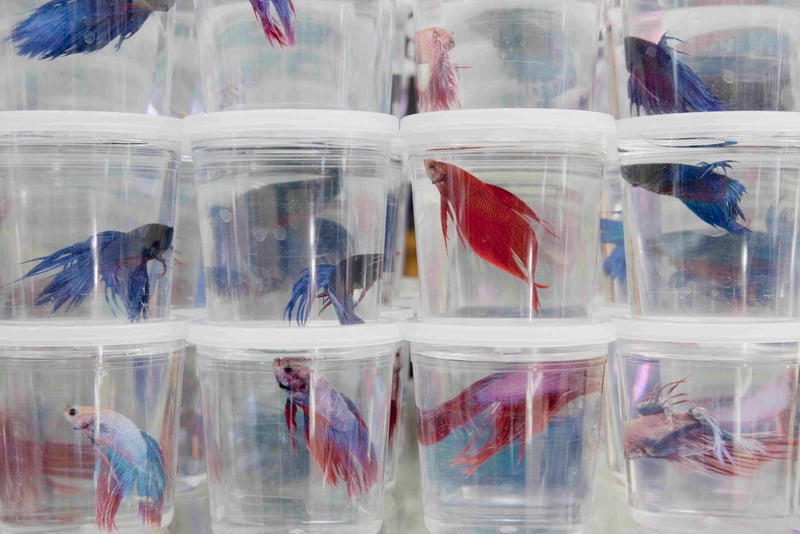
In May, Arlington, Massachusetts banned the sale of mammals, birds, reptiles, amphibians, and fishes in pet stores.
Arlington, MA made history in May by passing the first expanded retail pet sales ban to include fishes. While Cambridge, MA, and Washington, DC have banned the sale of mammals, reptiles, amphibians, birds, and arachnids, both of these bans excluded fishes—one of the most abused species in the pet industry.
Laura Kiesel, environmental advocate and head of the grassroots group Save Arlington Wildlife championed the expanded retail pet sales ban along with her co-sponsor, Arlington Town Meeting member Asia Kepka.
Ecological Impact of Pet Store Sales
Save Arlington Wildlife made a strong case for an expanded ban (using some fact sheets from World Animal Protection’s toolkit!). One argument that particularly resonated was the ecological devastation caused by selling wild animals in stores. Wild animals formerly kept as “pets” are a major cause of the spread of displaced species. Displaced species can devastate ecosystems because they introduce disease and bacteria to animals without immunity to these pathogens and compete with existing animals for food and habitat. For example, red-eared sliders, an aquatic turtle species, were sold in pet stores across Massachusetts until their sale was banned in 2014. Red-eared sliders crowd out existing species, create algal blooms that harm plants and invertebrates, and endanger public health by spreading salmonella. On warm days, you can still see red-eared sliders in ponds and rivers in the city.
Save Arlington Wildlife also secured the endorsement of sanctuaries and rescue groups like the MA Turtle Rescue League and Foster Parrots to provide firsthand accounts of the impact of animal sales on their work.
Fishes Deserve Better
Arlington sent a strong message to the pet industry by including fishes in its ordinance. Fishes aren’t ornaments or dentist office decorations. They’re animals, just like cats and dogs, who deserve to be treated with compassion.
Fishes have little to no legal protections under our laws and are excluded from the Animal Welfare Act (along with reptiles, amphibians, mice, rats, and insects). But fishes experience pain and emotion, can recognize other fishes, and solve puzzles. Billions of fishes are killed for food and captured or bred for the pet industry every year. Many of the fishes in the pet industry don’t even survive the trip to the pet store, with many dying during capture and transport.
Betta fishes, one of the most common species of fish sold in stores, are kept in small plastic containers with little water. In captivity, they need enrichment, filtration, and temperature-controlled tanks. Many of them die on store shelves.
Protect Animals in the Pet Industry
Want to pass an expanded retail pet sales ban in your community? Check out our toolkit for activists and our new policy concept one-pager geared toward legislators.